Widgetized Section
Go to Admin » Appearance » Widgets » and move Gabfire Widget: Social into that MastheadOverlay zone
Survey Examines Military Lifestyle, Needs of Families and Members
By Vivian Greentree
In recent times, our military community has come to the forefront of public discussion. The long-term effects of 12 years of sustained combat on service members, their families and their communities is something that can’t be relegated to the Department of Defense, the Department of Veterans Affairs and other traditional military community players. It will take a community-centric approach to address issues like reintegration, veteran employment and homelessness, mental health and the general wellness of our military families. Thankfully, our military community abounds with qualities like resilience, public service motivation and social connectedness that lend themselves to maintaining a healthy, thriving society.
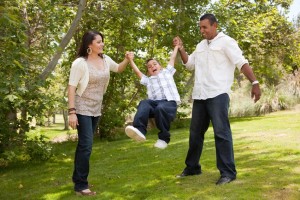 While military families have the same life experiences common to non-military families, such as work-life balance, parenting issues and educational concerns, they also have unique stressors relating to the requirements of the military lifestyle. For example, military families are more likely to move than their civilian peers. They have added stresses on their personal relationships, mental health/wellness issues related to repeated deployment cycles and reintegration process when they return home from duty. In general, our service member’s job affects their families in a way that other employers do not. Some researchers have called it a “greedy institution” – meaning our military leadership can tell us where to live, when to move, how to dress and we face uncertainties about the safety of our loved ones when they deploy.
While military families have the same life experiences common to non-military families, such as work-life balance, parenting issues and educational concerns, they also have unique stressors relating to the requirements of the military lifestyle. For example, military families are more likely to move than their civilian peers. They have added stresses on their personal relationships, mental health/wellness issues related to repeated deployment cycles and reintegration process when they return home from duty. In general, our service member’s job affects their families in a way that other employers do not. Some researchers have called it a “greedy institution” – meaning our military leadership can tell us where to live, when to move, how to dress and we face uncertainties about the safety of our loved ones when they deploy.
Yet, there is a lot of strength that develops and flourishes in the military community. In fact, I was so interested in the ties between military family resiliency and civic engagement that a special section was added to the Blue Star Families’ 2013 Military Family Lifestyle Survey to explore these relationships in depth. There is plenty of research that suggests the more connected you are to people, the more tied in you feel to others and the healthier you are. Our previous research findings indicate that military families engage in the types of social and civic behaviors that build healthy, vibrant communities.
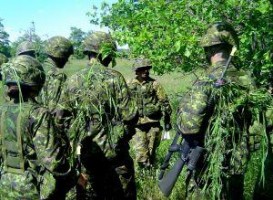
During deployments, we build strength in our connections to one another when we work together, to support each other. These informal networks help us to thrive in our communities and stay engaged with each other past military service. Every linkage, every bond creates lasting attachments that aid in resiliency and reintegration. Each challenge that we face, for example during a deployment, is also an opportunity for personal growth in our ability to come out stronger, more competent, more secure and able to face the next hurdle.
While there are unique challenges, there are also valuable and intangible benefits to the military lifestyle. These benefits include pride in service, connection to a greater cause, satisfaction with the contribution to society and an indomitable sense of civic virtue. Just as important is the personal growth of inner reserves of strength- the intrinsic power that comes from overcoming challenges and growing from them.
Our survey results also point to the strong, pro-social tendencies and civic assets that reside within the military community. Respondents in our 2013 survey volunteered at incredible rates—both informal and formal volunteering, voting behavior and charitable activities all had high levels of respondent participation. For example:
- 92 percent of respondents were registered to vote.
- In the 2012 presidential election, 91 percent of respondents said they voted.
- 66 percent of respondents said they had volunteered in a formal organization in the past year.
- Impressively, 10 percent of respondents volunteer time that is the equivalent of a part-time job.
Perhaps most strikingly, given some of the challenges already mentioned, a large majority of respondents would still recommend military service to their children, are satisfied with the military lifestyle, support the continued service of their service member, and think the all volunteer force has worked well. These findings are very powerful. Given the known sacrifices—the deployments, separations and wear and tear on families— respondents would still encourage their own children to sign up for military service.
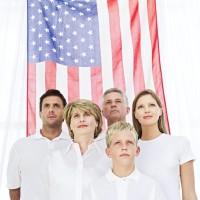
The concept of social capital would suggest that the complex, informal networks and relationships developed through the military family experience (e.g. trust-building, reciprocity, informal volunteering, shared sacrifice and cooperation between families) are the building blocks for a communitarian approach to democracy that values service and sees it as an important way to contribute to the public good. This is why emphasis on service and volunteerism is such an effective, vital bridge between the military and civilian populations with regard to the experiences of modern day military families. Military families know they must rely on one another in order to benefit the whole of their community and have learned that service to others can be a healing gesture for themselves.
Trust, hope, integrity, accomplishment and versatility. Tolerance, compassion and generosity. Yes, we have challenges but when we overcome them, it is incredibly powerful. We derive strength from these challenges and we grow. Ultimately, it is that strength and growth that makes for the amazing, competent, thoughtful, resourceful, engaging people who make up our military community. Maybe we are the lucky ones and maybe that is exactly why we would recommend this amazing lifestyle to our children.
If there is one thing I could pass on to my civilian friends, a strength from our community that has been forged through 12 years of war, it would be to appreciate each other. Revel in your relationships and your communities. Ask how you can help others and realize that you are only as strong as your weakest link. Talk unabashedly about what the words honor, courage, commitment and the public interest mean. We should think of each other as battle buddies, in sickness and in health, because we are stronger when we work together and when we cherish our connections to each other. That is the best way to honor service—with service, compassion and generosity of yourself, your talents, your resources and your heart.
Vivian Greentree, Ph.D., is Blue Star Families’ Director of Research and Policy and a co-founder of the organization. A Navy veteran and military spouse, Greentree’s areas of public policy research include civic engagement, public service motivation and military family community policy. She is a Senior Research Fellow at Syracuse University’s Institute of Veterans and Military Families. In 2012, she was named a Daily Point of Light, by the Points of Light Institute, for her volunteer work and has appeared as an expert on panels and at conferences and symposiums around the country. She can be reached at [email protected].



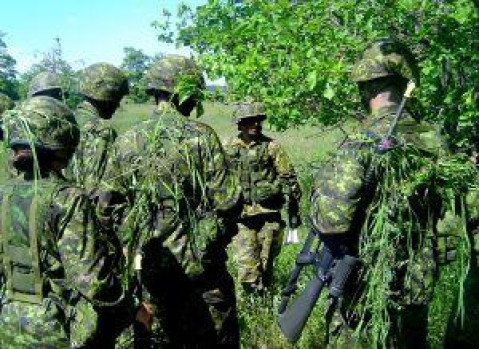
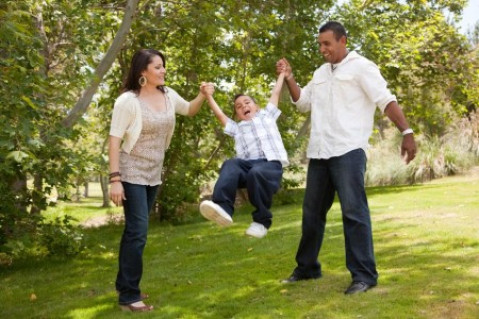
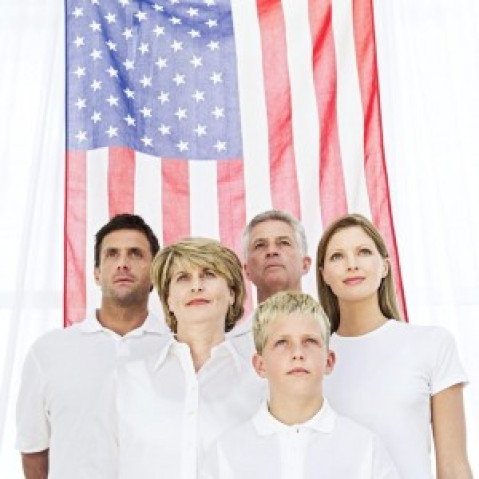

 (2 votes, average: 4.50 out of 5)
(2 votes, average: 4.50 out of 5)
Follow Us!